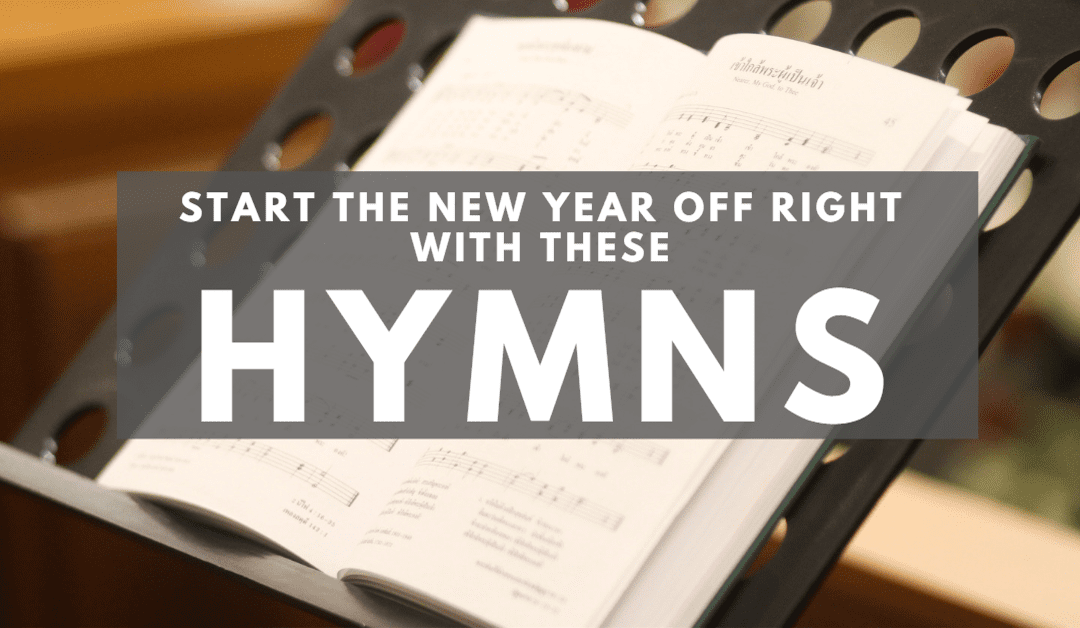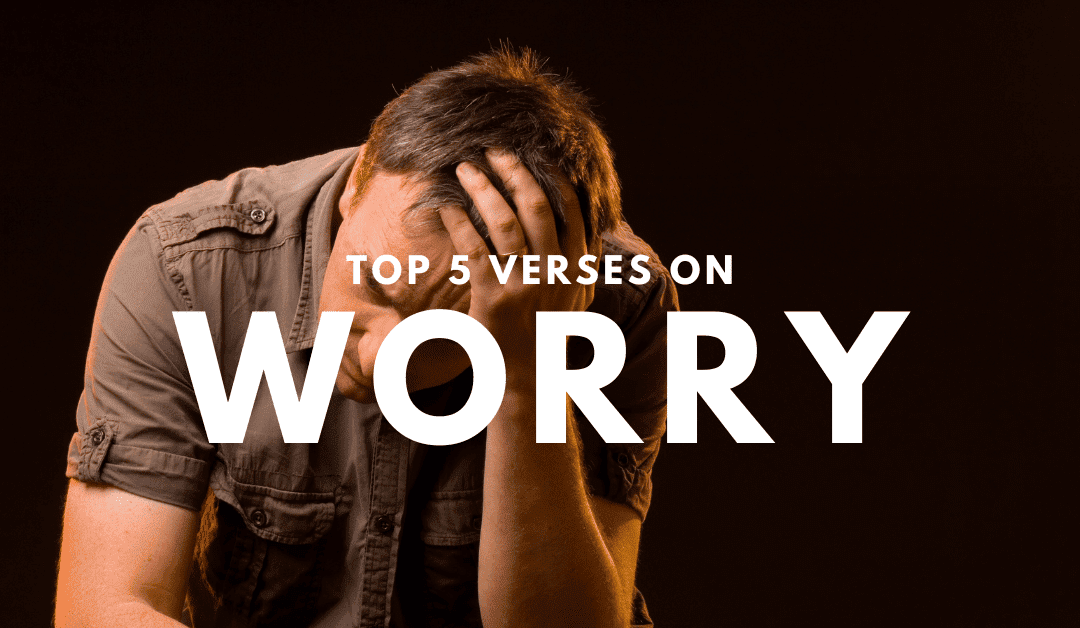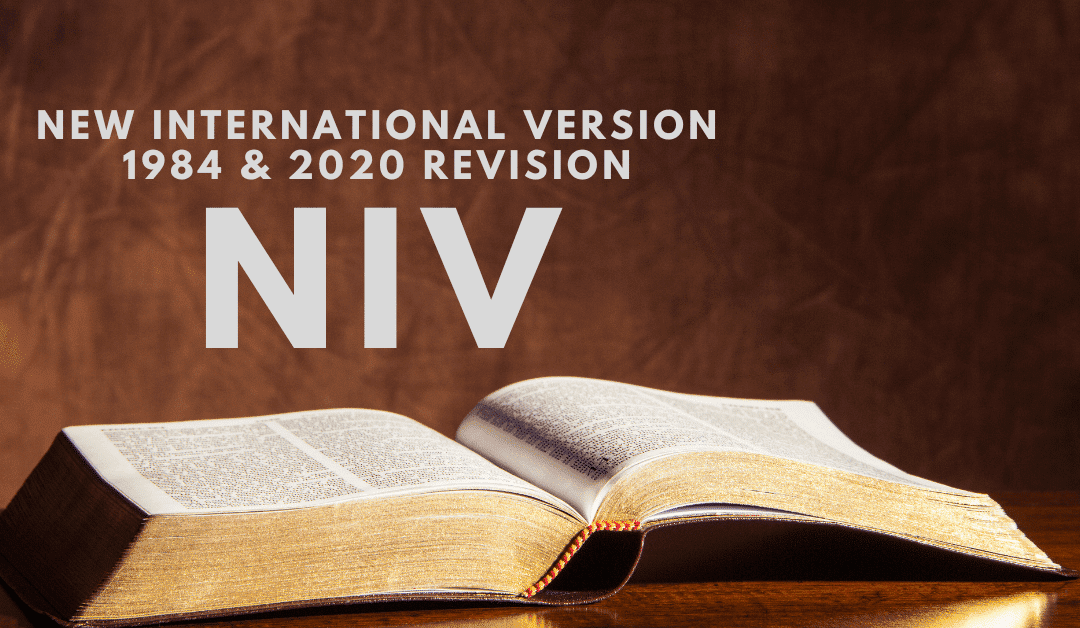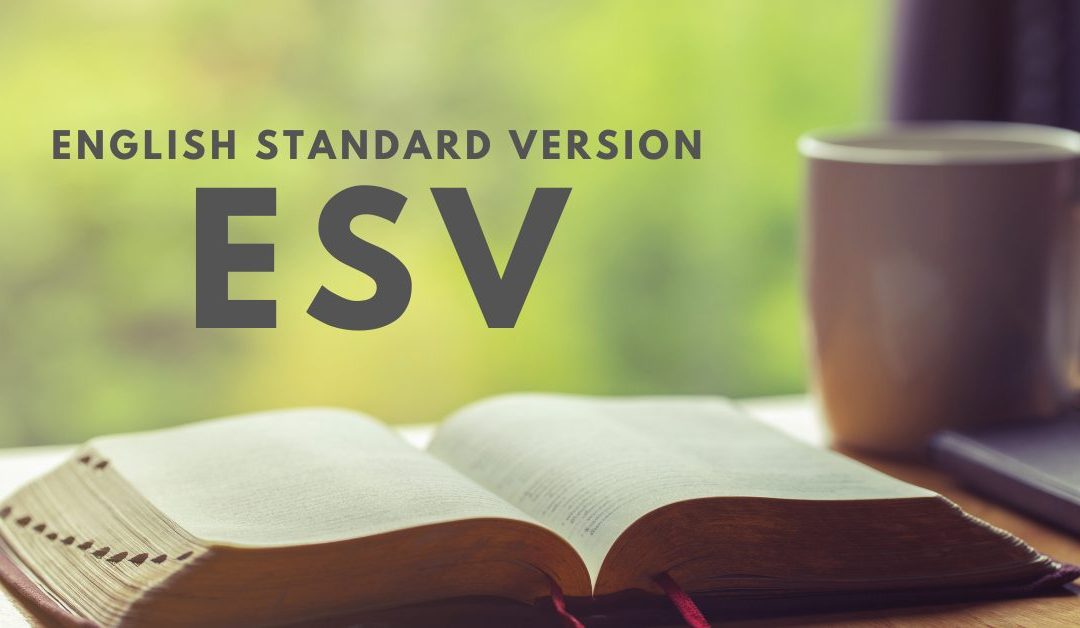
by avministry | Jan 1, 2023 | Blog, Music
- “Amazing Grace” – This is a well-known hymn that is often used to start the new year off on a spiritual note.
- “I Will Sing of My Redeemer” – This hymn is a tribute to Jesus Christ and His role as our redeemer. It is a great choice for starting the new year with a focus on faith.
- “Great Is Thy Faithfulness” – This hymn is a testament to God’s faithfulness and His presence in our lives. It is a great choice for starting the new year with a focus on gratitude and trust in God.
- “Joy to the World” – This hymn is a celebration of the birth of Jesus Christ and the joy that He brings to the world. It is a great choice for starting the new year with a focus on joy and hope.
- “Come Thou Fount of Every Blessing” – This hymn is a celebration of God’s grace and His role in our lives. It is a great choice for starting the new year with a focus on gratitude and trust in God.
- “O God Our Help in Ages Past” – This hymn is a tribute to God’s faithfulness and His presence throughout history. It is a great choice for starting the new year with a focus on hope and trust in God.
- “It Is Well with My Soul” – This hymn is a testament to God’s peace and comfort in times of trial and suffering. It is a great choice for starting the new year with a focus on hope and resilience.
- “Blessed Assurance” – This hymn is a celebration of the security and certainty of our salvation through Jesus Christ. It is a great choice for starting the new year with a focus on faith and assurance in God.
Blessed Assurance is a beloved hymn that has been a staple in Christian worship for over a century. It was written by Fanny Crosby, a hymnist and poet known for her prolific output and deeply faith-filled lyrics.
The story of Blessed Assurance begins in the late 1800s when Crosby was living in New York City and working as a hymnist. She had lost her sight at a young age, but she refused to let her disability hold her back. Instead, she used her gift for words and her deep faith to create hymns that touched the hearts of countless people around the world.
One of Crosby’s most famous hymns is Blessed Assurance, which was written in 1873. The hymn is based on a Bible verse, Philippians 3:7-8, which says, “But whatever gain I had, I counted as loss for the sake of Christ. Indeed, I count everything as loss because of the surpassing worth of knowing Christ Jesus my Lord.”
Crosby’s hymn reflects this verse, as it speaks of the peace and assurance that comes from having a personal relationship with Jesus. The hymn has three verses, each of which speaks to a different aspect of this relationship. In the first verse, Crosby sings about the joy and peace that comes from knowing Jesus as her savior. In the second verse, she speaks about the security and comfort that come from trusting in Jesus. Finally, in the third verse, she talks about the hope and assurance that she has in Jesus, even in the face of difficult circumstances.
Blessed Assurance has remained a popular hymn in the years since it was written, and it has been recorded by many different artists in a variety of musical styles. It is often sung in churches and at other Christian gatherings, and its message of hope and assurance continues to resonate with people of all ages.

by avministry | Dec 28, 2022 | Blog
The Message version of the Bible is a unique translation that has gained popularity in recent years for its conversational style and easy-to-understand language. While it can be a useful tool for personal study and understanding the context of certain passages, it is important to note that the Message should not be used as a primary translation for a number of reasons.
First and foremost, the Message is a paraphrase rather than a literal translation. This means that it is not a word-for-word rendering of the original Greek and Hebrew texts, but rather an interpretation of the meaning and intent of the text in modern English. While this can make the Message easier to read and understand, it also means that it is not as accurate or reliable as a literal translation.
In addition, the Message contains numerous changes and omissions that are not found in the original texts. For example, it often combines multiple verses into a single paragraph, rearranges the order of words and phrases, and omits certain words and phrases entirely. These changes can alter the meaning of the text and make it difficult to accurately compare the Message to other translations.
Despite these limitations, the Message can still be a useful tool for personal study and reflection. Its conversational style can help make the Bible more approachable and engaging, and its interpretation of certain passages can provide insight and perspective that may not be evident in other translations. However, it is important to use the Message in conjunction with more reliable translations, such as the New International Version (NIV) or English Standard Version (ESV), to ensure that you are accurately understanding the meaning and intent of the text.
Here are three verses from the New International Version (NIV) of the Bible and their corresponding translations in the Message (MSG):
- “For God so loved the world that he gave his one and only Son, that whoever believes in him shall not perish but have eternal life.” – John 3:16 (NIV) “This is how much God loved the world: He gave his Son, his one and only Son. And this is why: so that no one need be destroyed; by believing in him, anyone can have a whole and lasting life.” – John 3:16 (MSG)
- “Do not be afraid of those who kill the body but cannot kill the soul. Rather, be afraid of the One who can destroy both soul and body in hell.” – Matthew 10:28 (NIV) “Don’t be bluffed into silence by the threats of bullies. There’s nothing they can do to your soul, your core being. Save your fear for God, who holds your entire life—body and soul—in his hands.” – Matthew 10:28 (MSG)
- “For I am convinced that neither death nor life, neither angels nor demons, neither the present nor the future, nor any powers, neither height nor depth, nor anything else in all creation, will be able to separate us from the love of God that is in Christ Jesus our Lord.” – Romans 8:38-39 (NIV) “I’m absolutely convinced that nothing—nothing living or dead, angelic or demonic, today or tomorrow, high or low, thinkable or unthinkable—absolutely nothing can get between us and God’s love because of the way that Jesus our Master has embraced us.” – Romans 8:38-39 (MSG)
As you can see, the Message translation often uses more colloquial language and rearranges the order of words and phrases to make the text more readable and engaging. However, it is important to note that the Message is a paraphrase rather than a literal translation, and as such, it may not always be as accurate or reliable as a literal translation such as the NIV or ESV, NKJV, Etc…
In conclusion, while the Message can be a helpful tool for personal study and reflection, it should not be used as a primary translation. Its paraphrase nature and numerous changes and omissions make it less accurate and reliable than literal translations, and it is important to use it in conjunction with more reliable translations to ensure a thorough understanding of the Bible.

by avministry | Dec 28, 2022 | Blog
- “Do not be anxious about anything, but in everything by prayer and supplication with thanksgiving let your requests be made known to God. And the peace of God, which surpasses all understanding, will guard your hearts and your minds in Christ Jesus.” – Philippians 4:6-7 (ESV)
- “Therefore I tell you, do not be anxious about your life, what you will eat or what you will drink, nor about your body, what you will put on. Is not life more than food, and the body more than clothing?” – Matthew 6:25 (ESV)
- “Casting all your anxieties on him, because he cares for you.” – 1 Peter 5:7 (ESV)
- “For the sake of Christ, then, I am content with weaknesses, insults, hardships, persecutions, and calamities. For when I am weak, then I am strong.” – 2 Corinthians 12:10 (ESV)
- “Do not be anxious about tomorrow, for tomorrow will be anxious for itself. Sufficient for the day is its own trouble.” – Matthew 6:34 (ESV)
According to the Bible, worrying is a common experience that many people face. In Matthew 6:25, Jesus tells his followers not to be anxious about their lives and what they will eat or drink, saying that life is more than just food and clothing. In Philippians 4:6-7, Paul instructs believers to bring their concerns and requests to God in prayer and to trust that God will provide peace and understanding. In 1 Peter 5:7, we are told to cast all our anxieties on God, as he cares for us. The Bible also encourages us to trust in God’s sovereignty and not to be anxious about the future, as seen in Matthew 6:34 and 2 Corinthians 12:10. While it is natural to have concerns and fears, the Bible encourages us to turn to God and trust in his goodness and faithfulness rather than worry.

by avministry | Dec 28, 2022 | Blog
The New International Version (NIV) is a popular English translation of the Bible that has undergone several revisions since it was first published in 1978. The latest revision, the NIV 2020 edition, was released in August 2020 and includes a number of changes and updates to the text.
One of the main goals of the NIV 2020 revision was to make the translation more accurate and faithful to the original biblical languages. To achieve this, the translators used the latest available biblical scholarship and resources, including updated lexicons and dictionaries, and consulted with experts in fields such as linguistics and archaeology. The NIV 2020 also includes a number of changes to the text that were designed to make the translation more readable and easier to understand for modern readers.
One notable feature of the NIV 2020 is its gender-inclusive language. The translation uses inclusive language where appropriate to ensure that the text is accessible and meaningful to all readers. This includes using gender-inclusive terms such as “brothers and sisters” instead of “brothers” to refer to groups of people, and avoiding using male-centric terms or phrases when referring to God or other biblical figures.
The NIV 2020 also includes a number of other updates and improvements to the text, such as the use of more consistent language and the inclusion of more cross-references to help readers understand the context of the passages. The translation also includes additional study resources, such as a concordance and maps, to help readers delve deeper into the text.
Overall, the NIV 2020 is a significant update to the popular NIV translation, and it aims to provide a more accurate and accessible version of the Bible for modern readers. Whether you are a seasoned Bible reader or new to the text, the NIV 2020 is a valuable resource to help you better understand and engage with the biblical text.
So what are the main differences between the NIV 1984 and NIV 2020? Here are a few key points to consider:
- Gender language: One of the main differences between the NIV 1984 and NIV 2020 is the way they handle gender language. The NIV 1984 used masculine language when referring to God and to people in general, which caused some controversy among readers who felt that it was not inclusive enough. The NIV 2020 addresses this issue by using more inclusive language that is sensitive to the diversity of genders and experiences represented in the Bible.
- Terminology: The NIV 2020 also updates some of the terminology used in the translation in order to make it more accurate and consistent with the original text. For example, the NIV 2020 replaces the term “prodigal son” with “lost son” in the parable of the prodigal son (Luke 15:11-32) because the term “prodigal” can be misleading and does not accurately reflect the meaning of the original Greek word.
- Translation philosophy: The NIV 1984 and NIV 2020 also have slightly different translation philosophies. The NIV 1984 follows a formal equivalence approach, which aims to preserve the formal structure of the original text as closely as possible. The NIV 2020, on the other hand, follows a functional equivalence approach, which aims to convey the meaning of the text in a way that is natural and easy to understand for modern readers.
- Readability: As a result of these differences in translation philosophy, the NIV 2020 is generally considered to be more readable and easier to understand than the NIV 1984. It uses more natural English and avoids some of the more archaic language and word choices that were present in the NIV 1984.
Overall, the NIV 1984 and NIV 2020 are both reliable and respected translations of the Bible, but they do have some notable differences that readers should be aware of. Whether you prefer the NIV 1984 or NIV 2020 will likely depend on your personal preference and what you value most in a translation. Ultimately, the most important thing is to choose a translation that you can understand and that helps you connect with the message of the Bible.

by avministry | Dec 28, 2022 | Blog
The English Standard Version (ESV) is a popular translation of the Bible that was first published in 2001. The translation was developed by a team of biblical scholars and translators who sought to create a text that was both accurate and readable and that would be suitable for a wide range of readers and settings.
One of the key features of the ESV is its commitment to fidelity to the original biblical languages. The translators of the ESV sought to produce a text that was as close as possible to the original Hebrew, Aramaic, and Greek texts, while still being easy to understand for modern readers. To achieve this goal, the translators used a formal equivalence approach, which aims to maintain the structure and wording of the original texts as closely as possible.
In addition to its commitment to accuracy, the ESV is known for its clarity and readability. The translation uses simple, straightforward language and avoids overly technical terms or jargon that might confuse some readers. This makes the ESV an excellent choice for those new to the Bible or looking for a translation that is easy to understand.
The ESV also includes a number of study resources to help readers better understand and engage with the text. These resources include cross-references, maps, a concordance, and introductions to each book of the Bible that provide helpful background information.
Overall, the ESV is a highly respected translation of the Bible that is known for its accuracy and readability. Whether you are a seasoned Bible reader or new to the text, the ESV is an excellent resource to help you better understand and engage with the biblical text.
The English Standard Version (ESV) Bible was translated by a team of biblical scholars and experts in the English language. The translation was sponsored by Crossway, a Christian publishing ministry, and the translation committee included men and women from a variety of denominations and churches. Some of the scholars who served on the translation committee for the ESV include:
- Leland Ryken: Professor of English at Wheaton College
- Wayne Grudem: Professor of Theology and Biblical Studies at Phoenix Seminary
- J.I. Packer: Professor of Theology at Regent College
- J. Daryl Charles: Professor of Theology at Gordon-Conwell Theological Seminary
- Bruce Waltke: Professor of Old Testament at Reformed Theological Seminary
- D.A. Carson: Research Professor of New Testament at Trinity Evangelical Divinity School
- Douglas Moo: Professor of New Testament at Wheaton College
- Vern Poythress: Professor of New Testament Interpretation at Westminster Theological Seminary
- Moisés Silva: Professor of Biblical Studies at Westminster Theological Seminary
- Craig Blaising: Professor of Theology at Southwestern Baptist Theological Seminary
This is just a small sampling of the scholars who were involved in the translation of the ESV. The full translation committee included over 50 scholars from a variety of different academic institutions and denominations.
Here are the top 5 most popular verses from the English Standard Version (ESV) Bible, based on data from the Bible Gateway website:
- “For God so loved the world, that he gave his only Son, that whoever believes in him should not perish but have eternal life.” (John 3:16)
- “For I know the plans I have for you, declares the Lord, plans for welfare and not for evil, to give you a future and a hope.” (Jeremiah 29:11)
- “Trust in the Lord with all your heart, and do not lean on your own understanding.” (Proverbs 3:5)
- “Be still, and know that I am God. I will be exalted among the nations, I will be exalted in the earth!” (Psalm 46:10)
- “And we know that for those who love God all things work together for good, for those who are called according to his purpose.” (Romans 8:28)
These verses are all well-known and frequently quoted in Christian circles. They are popular because of the encouragement and hope they offer and because of the timeless truths, they contain about God’s love, purpose, and sovereignty.







